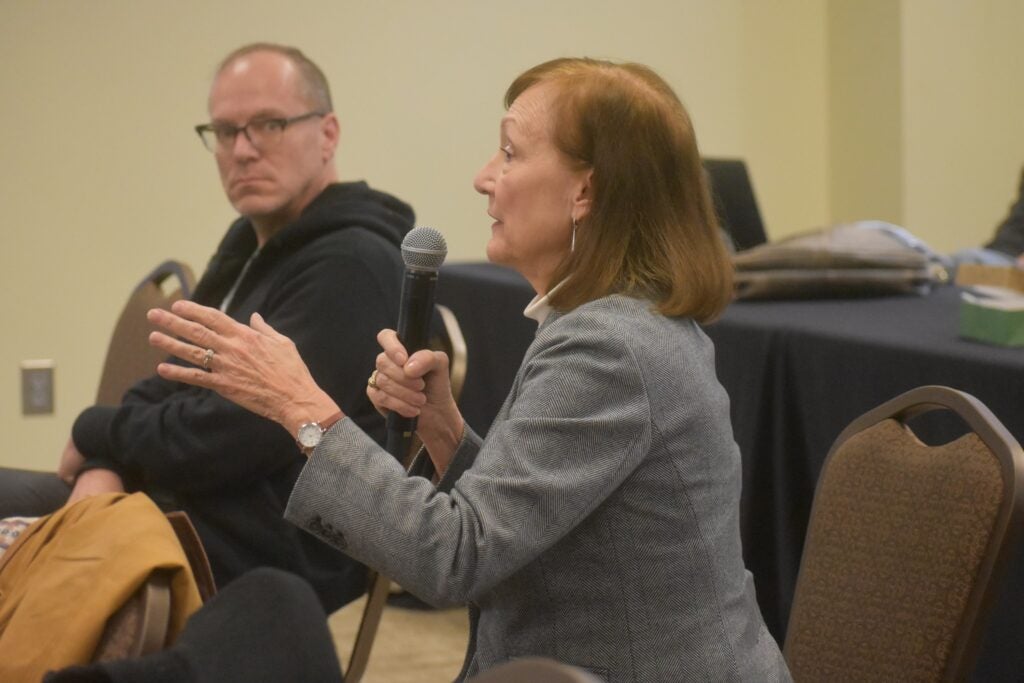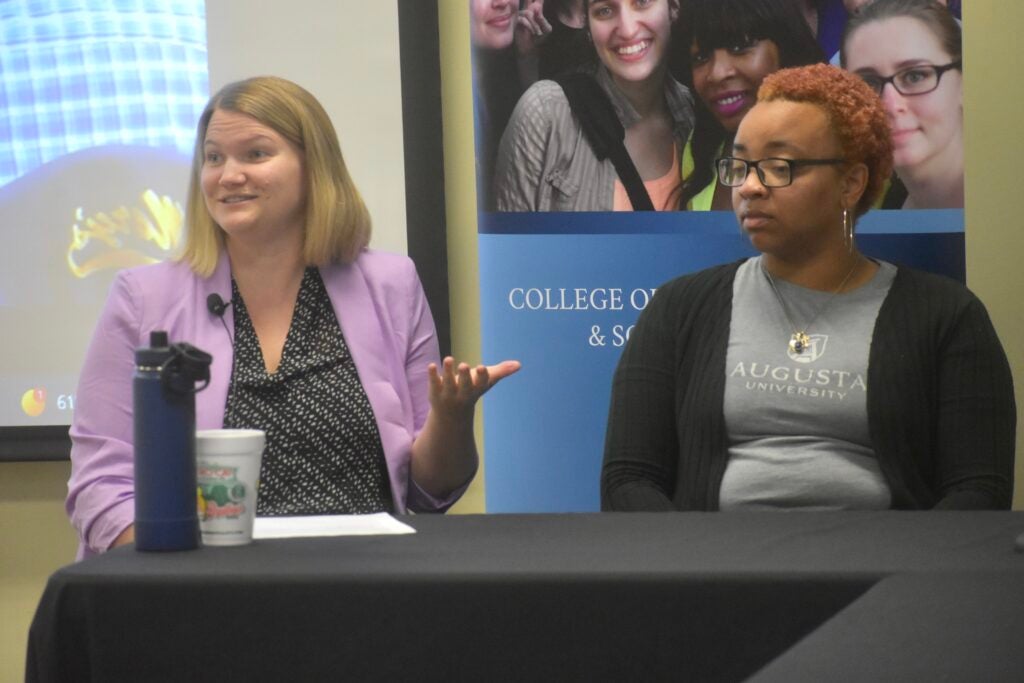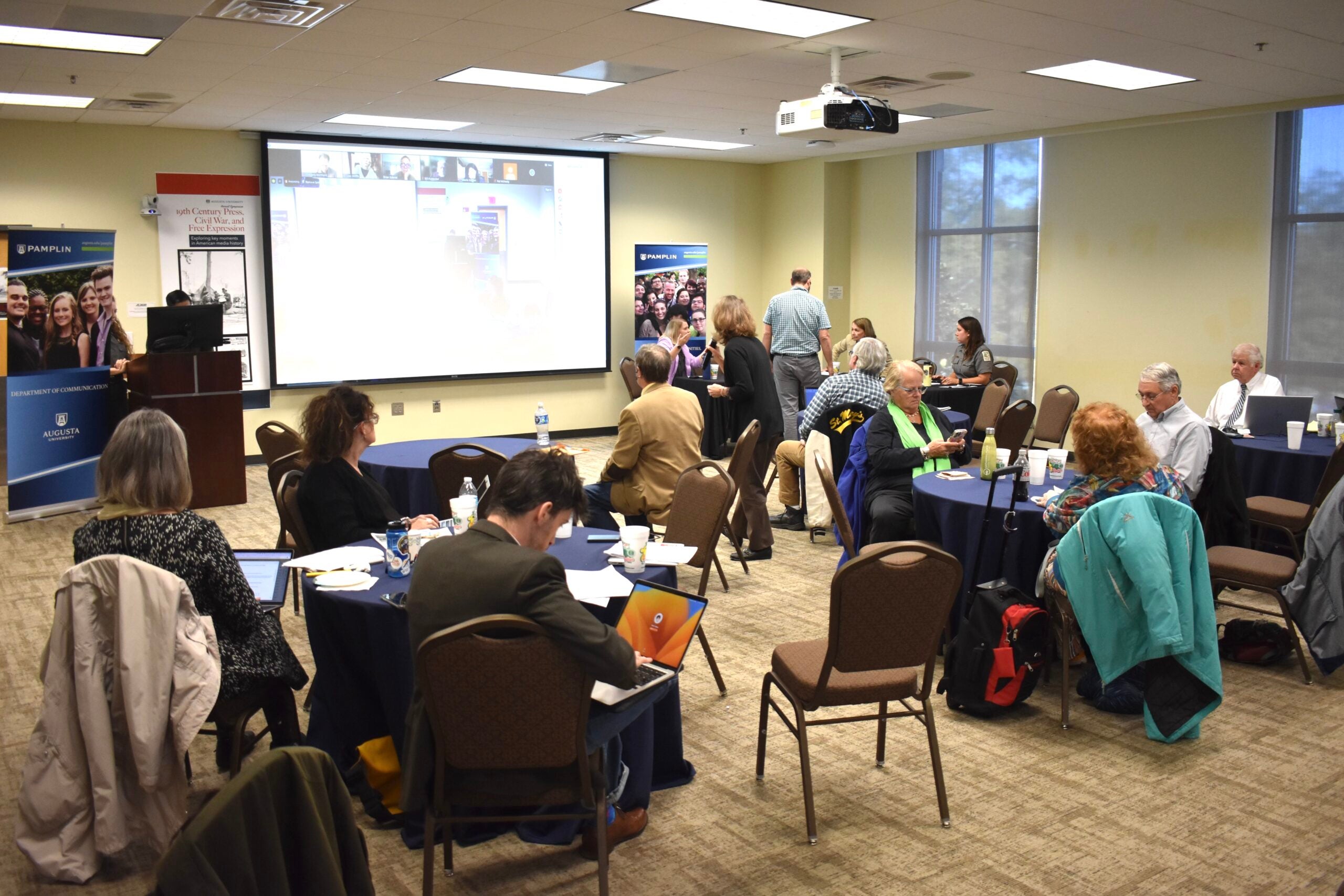In partnership with the Pamplin College of Arts, Humanities and Social Sciences, Augusta University is presenting the 31st annual Symposium on the 19th Century Press, the Civil War and Free Expression from Nov. 2-4.
Joining the Society of 19th Century Historians at the university’s Summerville campus, several attendees discussed various research topics, such as: press coverage of the Civil War, Antebellum reporting, reconstruction, supernatural reporting, African American press, press narratives from the 1800s that shaped popular thought and more.
Formerly hosted at the University of Tennessee at Chattanooga for 30 years, until the death of the late founder David Sachsman last September, the symposium yearly invites researchers to submit and present online and in-person historical research papers that focus on media during the 1800s.
Following Sachsman’s death, Augusta University stepped up to host the symposium in hopes of continuing Sachsman’s work to prioritize networking and open communication in hopes of future academic collaborations for further research.
“He always kind of wanted things to be close to where the action of Civil War occurred, and while Augusta did not have any battles, but Sherman’s march from Atlanta to Savannah happened just south of here,” said David Bulla, a member of the symposium’s planning committee and the chair of AU’s Department of Communication. “So it’s all around us and that’s a compelling reason to have it here … and Augusta was a military arsenal here and for a brief period of time the state’s capital.”
With a background in journalism and an avid historian, Bulla also said he wanted the conference to continue because of the many opportunities it gave historians and participating students – something Sachsman always believed helped encourage emerging generations of historians.

“In this symposium, I think we do a good job of making the research more intimate – more about the people and the stories and less about the facts,” he said. “Not that the statistics aren’t important … but I think that intimacy attracts those of us who were journalists, and those are the stories that we really want to tell. I just hope that’s also interesting to students.”
Today, Bulla endeavors to continue supporting similar conferences to further highlight the importance of citizens understanding and investing in history.
“Americans, we want to say we’re historical and we want to think of history as very important, but we don’t always know it as well as we ought to,” said Bulla. “So, I think in some ways this conference has us go back and look at or try and figure out what was going on back then.”
Flushing out many topics with different panels of experts, including park rangers from South Carolina’s well known Redcliffe Plantation, the hybrid conference discussed the historical significance of different regions interpreting historical events with opposing viewpoints based on local effects on communities, such as the common argument of Georgia and South Carolina’s classification of when reconstruction truly ended.
“What’s so fascinating about Reconstruction history from the newspaper is that – depending on the political party – these stories are entirely different,” said panel expert and Reconstruction historian, Melissa DeVelvis. “So, a really close reading of the press and the different angles they wrote from is sometimes the only way we could cobble together these Reconstruction narratives, because it’s not as well collected as some of the war stuff.”
While also discussing how to make information about Reconstruction and other significant time periods interesting and available to the public, especially students, historians highlighted the importance of media literacy in deciphering the biased coverage reporters can oftentimes present to readers in support of a political party or decision.

In a time where news is even further condensed or misconstrued on social media platforms, DeVelvis said complex thinking and analysis of news is still very relevant and necessary.
“The way that we often narrow everything down to just a quote from the news and that’s what shows up on the Twitter feed and what everyone sees … it’s kind of similar to how people used to write or say things differently,” she said. “So, teaching people to read analytically and think critically – to question where things are coming from and why a person is writing that way – is really important.”
In tradition with Sachsman’s vision for the conference, the final conference day will conclude with a special awards ceremony and a tour of Redcliffe Plantation.
“At UTC, we always went somewhere after the conference was over to get some more historical context – usually Lookout Mountain, which had an interesting battle because it occurred on a mountaintop,” said Bulla.
Once the home of James Henry Hammond and his numerous slaves, attendees will walk the grounds of Redcliffe Plantation to learn about one of the south’s most successful cotton planters from the 1800s, who later became a congressman, a senator and a governor.
To find out more about the symposium or the 19th Century Historical Society, please visit: https://sites.google.com/view/19thcenturyhistorians










